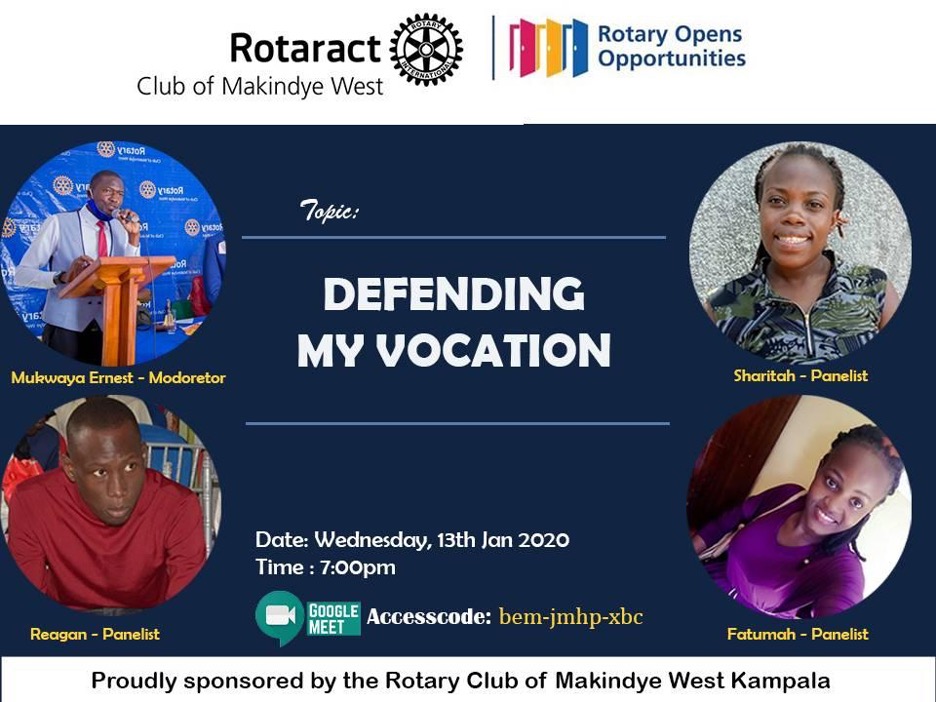Admittedly, it is more than a little embarrassing to declare, that despite nearing middle age, one is still unable to drive a car, let alone fix it. Of course, driving schools and auto repair shops are available to address these gaps in no time. Despite perceptions to the contrary, the world at large has yet to approach the Armageddon level of total shortage of “x” or “y” profession.
January is designated as the Vocational Service Month in the Rotary calendar. The word vocation is derived from the Latin vocare, which literally means “to call.” For Rotarians and Rotaractors, one’s profession is not merely one’s “job,” which is caricatured by something you do from 9 am to 5 pm, and getting a paycheck every two weeks. For Rotarians and Rotaractors, one’s profession is a vocation, or a “calling,” if you will. The electrician ensures all cables in the neighborhood are properly in place for households to enjoy time at home. The lawyer ensures people are always accorded due process before the law. The accountant ensures that everything financially is where it should be for their clients. The list goes on, but notice how each profession is not so much about how one makes a buck, but more about how much one does things for others. To be sure, fixing cables and doing audits is part of the job description – the “minimum requirement” – but the main point is that it is still an endeavor benefitting individuals, families, and communities. In short, one’s profession – or vocation – is ultimately an act of service in itself.

In the Rotary community, going the extra mile for others is an afterthought. As Paul Harris wrote: “Each Rotarian is a connecting link between the idealism of Rotary and their trade or profession.” Translation: Rotarians and Rotaractors should continually use their time, effort, and experience in sharing their technical expertise in their respective professions with others. It certainly does not hurt to be certified or licensed to be able to teach said expertise to others, but the willing disposition to do so is certainly a good start. Not everyone becomes a full-time teacher, of course, but sharing one’s knowledge and skillset with the rest of society can go a long way. Everyone does not become an expert overnight, or even at all, but a healthy amount of knowledge shared can make all the difference in the world.
Internally, Rotarians and Rotaractors can utilize their regular meetings to discuss and plan seminars, trainings, and workshops on having various professionals share their expertise in their respective fields. Certainly, each profession benefits a subset of the population, so it would be ideal that the knowledge and skillsets to be shared would benefit the greatest number of people possible. This should be consistent and sustainable because service is never a one-off thing. It is a lifelong endeavor.

So when one has fully learned how to drive a car and how to fix it, one can be assured to share that knowledge and expertise to the next persons in need. The ultimate profession – vocation – is to educate others. We cannot change the world for the better overnight, but we can do so with every person we guide, and every life we serve.




